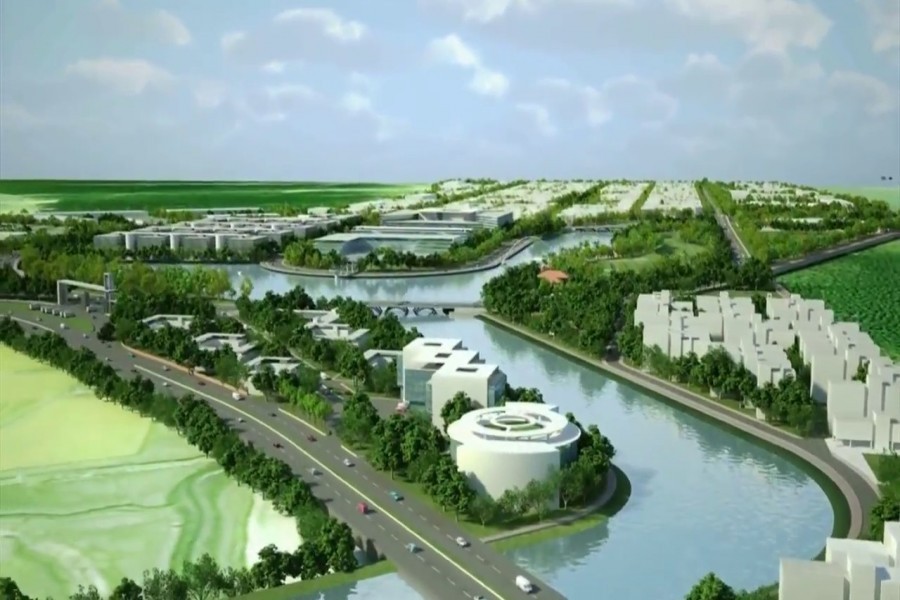The government's industrial zones are being implemented in an unplanned way, at considerable cost to life, livelihood and the environment, rights groups alleged.
They fear at least one million people will somehow be affected by the billion-dollar Moheshkhali-Matarbari, Kolapara and Rampal-Mongla industrial hubs.
Airing concern, they said the government has been trying to provide social protection for the extreme poor, widows, the elderly and mothers on the one hand.
But people in large numbers are losing income and houses on the other for a distinct lack of a proper master plan, rehabilitation and compensation for them.
The government primarily announced to acquire limited land, but vested interests in collusion with the local administration are out to acquire vast areas.
The result is obvious: displacement of a large number of local inhabitants and their eviction from homesteads and harassment by way of framing them in false cases.
Land acquisition is contrary to the government announcement that no industry can be set up in arable land, rights activists said.
The announcement of not acquiring the land producing three crops a year is also violated, they pointed out.
A survey done by Pran-Prokriti Surokkhya Mancha revealed 23 and 15 ongoing projects respectively in Moheshkhali-Matarbari in Cox's Bazar and Kolapara in Patuakhali.
The Rampal-Mongla hub in Bagerhat will have projects like Khulna-Mongla railway, Khan Jahan Ali airport, Rampal power plant, Mongla special economic zone (SEZ) and Indian SEZ.
What is more, 193 private industries have already started work there putting the ecologically critical areas like the Sundarbans under threat.
Payra port, naval base, three coal-fired plants, coal terminal, cement factory, four-lane road, LNG plant and four housing projects will be built in 12 unions of Kolapara upazila.
The government has acquired 11,000 acres of land for these projects, not counting the land acquired by private industries through middlemen.
Kolapara has only 419 square kilometres of land area.
In Uttar Devpur, Chalitabunia and Uttar Lalua unions, 30,000 families have been evicted and 30,000 families have lost their livelihood.
More than 0.1 million people are to be directly affected in the sub-district that covers 50,000 acres of agricultural land.
Of the land, according to the survey report, 16,200 acres produce three crops a year.
Local land owners have got 1.5 times compensation for acquiring their land as per the 1982 rule, but they had to pay 10 per cent bribe.
Even local youths have to work for Tk 390 instead of Tk 500 per day due to inadequate employments opportunities.
Besides, poor people living in khas (government-owned fallow land) land for generations have not been compensated.
The authorities were supposed to rehabilitate them, but it is uncertain when they will be resettled.
Expressing frustrations, Power and Participation Research Centre executive chairman Hossain Zillur Rahman said the "human face" of the government should be reflected in its development projects.
There is a gap between errant development and human rights-based development, he told the FE.
Regarding irregularities in compensation and land acquisition process, Mr Rahman said there is still some weakness in these processes.
"We've land scarcity. But we see serious misuse of land in the name of development. The land is being used for other purposes…," said the former caretaker government adviser.
"Most of the land is going to the hands of the rich," he went on to say.
Mr Rahman suggested that land acquisition and compensation process be brought under strict regulation and a separate safety net programme be introduced for industrial zones where people are affected.
The government is said to have acquired 751 acres for Khulna-Mongla rail line, 636 acres for Khan Jahan Ali airport, 1836 acres for Rampal plant, 300 acres for Mongla SEZ and 200 acres for Indian SEZ.
Poor Nurjahan (not her real name), a victim of the airport project, said she got Tk 0.2 million in compensation instead of Tk 3.0 million.
But in getting the money, she had to stomach much harassment and insults by the authorities at various stages.
The rights platform alleged that many landless poor have been evicted without notice.
Barrister Jyotirmoy Barua, a Supreme Court lawyer, said those who even have adverse possession rights accrue minimum right on that land.
Moreover, the constitution certainly tells the government to ensure protection of property, he added.
Mr Barua said people are being unemployed and their workplace shifted, and that there is a negative impact on the biodiversity in project areas.
"People are not getting benefits from these development projects as per the government announcement. In many cases, there is a serious deviation between the planning and implementation process," he stated.
Meanwhile, former country representative of IUCN Istiaq Uddin Ahmad said development has become a menace to the local people in project areas.
Researcher Tanzim Uddin Khan termed the present development process 'development violence'.
Experts think it is positive that the government has been building multiple industrial zones.
But it prepares area-wise environmental and social impact assessment report (EIA and SIA) for a project in an unorganised way and without proper consultation with local people, they said.
The experts said the existing rehabilitation action plan is never implemented properly.


